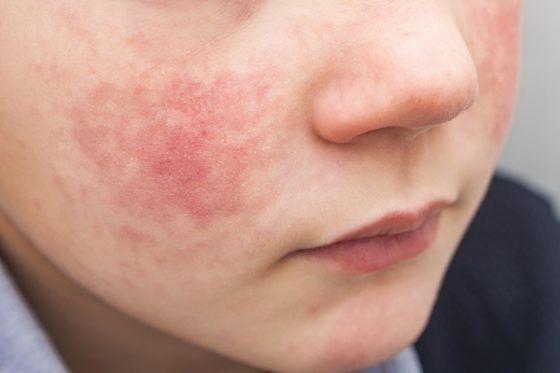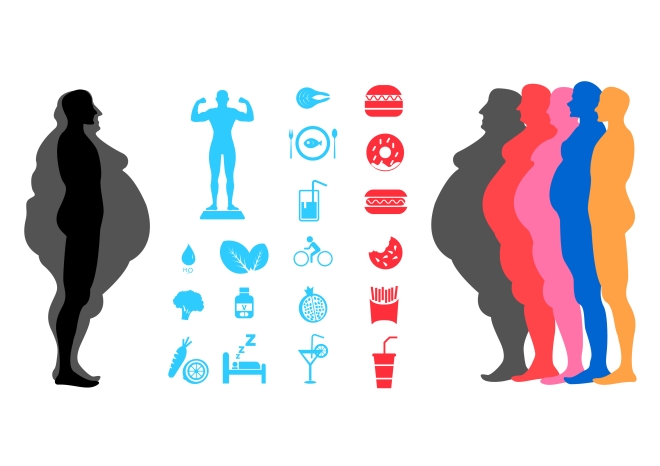Food Allergies- How To Help Your Child Cope
As a parent, there’s nothing easy about learning your child has a food allergy. The last thing you want is to know your child has a lifelong condition. And the anxiety you’re bound to feel over this, once hearing the news, will be immense.
It’s horrible news to receive, but you and your child are not alone. Around 32 million Americans live with a food allergy, with nearly one in 13 children being diagnosed with one.
We get if this news doesn’t assuage all of the anxiety you feel for your child, but it’s a step in the right direction. Part of coming to terms with a medical condition is understanding that others out there are living with it.
If anything, you can learn from their experience and help your child through the lessons they’ve encountered. For some, it’s learning a medical alert bracelet can save their lives in the event of an allergic reaction. For others, it’s knowing there’s a community to support them along the way.
Here’s a collection of personal tools you, as a parent, can use to cope with your child’s food allergies.
Always Remain Prepared
First off, the number one thing you can do for your child is to remain prepared. This includes checking in with restaurants and cafes about potential allergy contamination in food and drinks, teaching them to stay aware of the food they come in contact with, and always carrying their epinephrine auto-injector wherever they go.
You must always have their EpiPen nearby, as a sudden allergic reaction should be mitigated before it can become any worse. Suppose they come in contact with an allergy-inducing substance or begin showing allergic symptoms. In that case, you can inject the EpiPen, protecting them before more severe symptoms — like anaphylaxis — can settle in.
The important thing about carrying an EpiPen is instilling a sense of responsibility in your child. Having an EpiPen shouldn’t be treated as anxiety — the worry an allergic reaction could happen at any time.
That added stress is unnecessary for both you and them. However, it should be a form of preparation. Living with allergies requires precautions to be taken, and your child should remain mindful of their food allergies without it consuming their life.
Moreover, it’s a good idea to have a food allergy action plan which you can provide to any other adults who might be caring for your child, whether that’s a teacher, a coach, or a parent hosting a sleepover. It’s one of many simple ways to give other adults the tools to care for your child in the event of an allergic reaction while making them mindful of the condition.
Prepare Your Child, Too, and Understand Their Limits
All the responsibility shouldn’t be on your shoulders, though. It might have to be for some time, depending on your child’s age, but you should begin teaching them the basics of their food allergy earlier rather than later.
For instance, your young child shouldn’t be expected to read and understand nutrition labels on food closely, nor should they be expected to inject an EpiPen on their own in the event of an allergic attack. However, they should know enough to inform an adult of their allergy while you’re not around.
Part of this process will involve you having to ask many personal questions of yourself and your child, all of which are related to how prepared they are in the event of an allergic attack.
Preparatory Questions to Ask Your Child
- Does my child understand the severity of their allergy?
- What do they think will happen if they eat the food they’re allergic to?
- Can they communicate with other adults about their food allergies?
- Will they submit to peer pressure if other kids try to force them to eat something?
Furthermore, consider the adults in their life, whether they be coaches or a friend’s parents:
- How would these adults handle your child’s allergy?
- Do they know how to react in the event of an allergic reaction?
- How do they feel about your child needing an EpiPen?
- How do they handle food in your child’s presence?
Knowing the answers to these questions can inform your decisions moving forward, including what people you’re comfortable with having your child around and teaching your child the basics about their allergy and how to stand up for themselves.
A simple means of covering these bases is having your child wear an allergy bracelet for kids. You can teach your child always to wear their bracelet whenever they are out of the house, allowing them to carry their allergy information wherever they go. Engravings can include:
- What foods they are allergic to
- Whatever other contaminants they’re allergic to
- Your name and phone number
- Their pediatrician’s name and phone number
- Notifying they carry an EpiPen
- Whatever medications they are on
- Medications and treatments to avoid in the event of an allergic reaction
It’s not a be-all solution, as you should still be informing other adults and your child about their allergy, but it’s an excellent means of protection in the event of an attack.
Challenging Food-Allergy Anxiety
One of the most common issues seen in children with allergies is anxiety related to food. It’s not anxiety coming out of nowhere. It’s from watching how their parents react to food allergies.
The best thing you can do as a parent is to inform your child without riling them up. No good will come from overwhelming them with horror and anxiety as it relates to their allergy. Let them live life as they otherwise would.
Remain vigilant, teach them their limits, and allow them to be a child still. When living with a food allergy, the best you can do is to avoid allergens when possible. Click here to see common food allergies.








